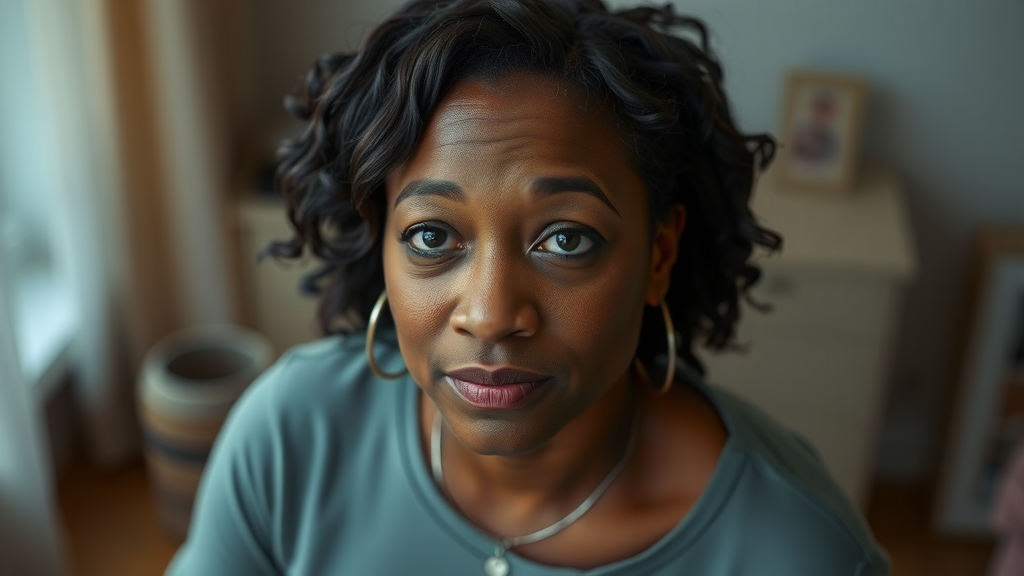Overcoming $45K in Medical Debt Through Bankruptcy
Nia
medical expenses, personal bankruptcy, Abbotsford
Nia faced $45,000 in medical debt, feeling overwhelmed by creditor calls and the burden this put on her life. Opting for personal bankruptcy brought relief, offering a fresh start by wiping away most debts. Her journey highlights resilience and the power of community in overcoming financial hardships.

Nia finds relief from medical expenses through personal bankruptcy.
Name: Nia
City: Abbotsford, British Columbia (BC)
Occupation: Caregiver
Debt amount: $45,000
Main reason for debt: medical expenses
Debt relief solution: personal bankruptcy
Elimiate up to 80% of Your Debt
High cost of gas, high cost of groceries, high lending rates, low salary - being in debt is not your fault! See if you qualify for government debt programs and get out of debt today!
Nia’s Debt Story
Nia sat at her kitchen table in Abbotsford, surrounded by a slew of unpaid bills that seemed to mock her with their insistence. The phone calls from creditors felt relentless, each ring punctuating the rising tide of anxiety that had begun to drown her once-peaceful life. As a dedicated caregiver, she’d always been the one to provide solace and support to others; now, she found herself in a position she never imagined — finally coming to terms with the reality of the $45,000 in debt she had accrued, primarily from unexpected medical expenses. The weight of this debt bore heavily on her relationships, causing tension with friends who couldn’t quite grasp how deep her financial troubles ran. Dealing with the clubbing beat of constant missed payment reminders fractured her daily routine, leaving her feeling trapped in a cycle of shame and despair.
Reflecting on how she’d reached this point was almost as painful as facing the debt itself. The steady stream of medical issues that had necessitated endless appointments and treatments chipped away at her finances, leaving behind a seemingly insurmountable financial mountain. Each month brought more anxiety, and at 38, the pressure was pushing her to the brink of hopelessness. Yet inside Nia, there still flickered moments of determination, whispers of resilience urging her to find a way out. She realized she needed to act decisively, and with great trepidation, she reached out to a financial counselor for guidance. Sacrifices became necessity as she downsized her living arrangements and limited every non-essential expenditure.
In the end, the most viable path forward was personal bankruptcy, a decision that lifted the weight from her shoulders, allowing her to breathe a little easier. This legal process gave her a chance to reset, to rebuild her life devoid of the constant shadow of past mistakes. It wiped away the majority of her debts, offering a new beginning despite the blemish on her financial record. Through this journey, Nia recognized a shared experience in financial hardship, a silent struggle that many around her faced. Her story serves as a testament that while the path out of debt can be arduous, one is never truly alone in the journey. Financial literacy, sustainable solutions, and community support can turn moments of despair into opportunities for recovery and growth.
Related Questions
Here are the top 5 most frequently asked questions related to “medical expenses” and “personal bankruptcy” in Canada, along with brief answers:
1. Can medical bills lead to personal bankruptcy?
Medical bills can contribute to personal bankruptcy, but they are rarely the sole cause; more often, they are part of a broader financial struggle, especially when combined with lost income due to illness or injury.
2. How are medical debts handled in a personal bankruptcy?
Medical debts are considered unsecured debts and can be included in a bankruptcy or Consumer Proposal, allowing individuals to potentially discharge these debts.
3. What alternatives are available to personal bankruptcy for managing medical debts?
Alternatives include Consumer Proposals, which allow negotiating with creditors to pay back a portion of the debt, and informal debt settlements, which involve negotiating directly with creditors outside the formal bankruptcy process.
4. Do I still have to pay medical bills if I declare personal bankruptcy?
While medical bills can be discharged through bankruptcy, any new medical bills incurred after the bankruptcy filing will still need to be paid. Existing medical debts, however, can be included in the bankruptcy process.
5. How does personal bankruptcy affect my credit score if it is due to medical expenses?
Personal bankruptcy, regardless of the reason, will negatively impact your credit score and typically remains on your credit report for six to seven years from the date your bankruptcy is discharged.
Eliminate up to 80% of Your Debt
High cost of gas, high cost of groceries, high lending rates, low salary - being in debt is not your fault! See if you qualify for government debt programs and get out of debt today!